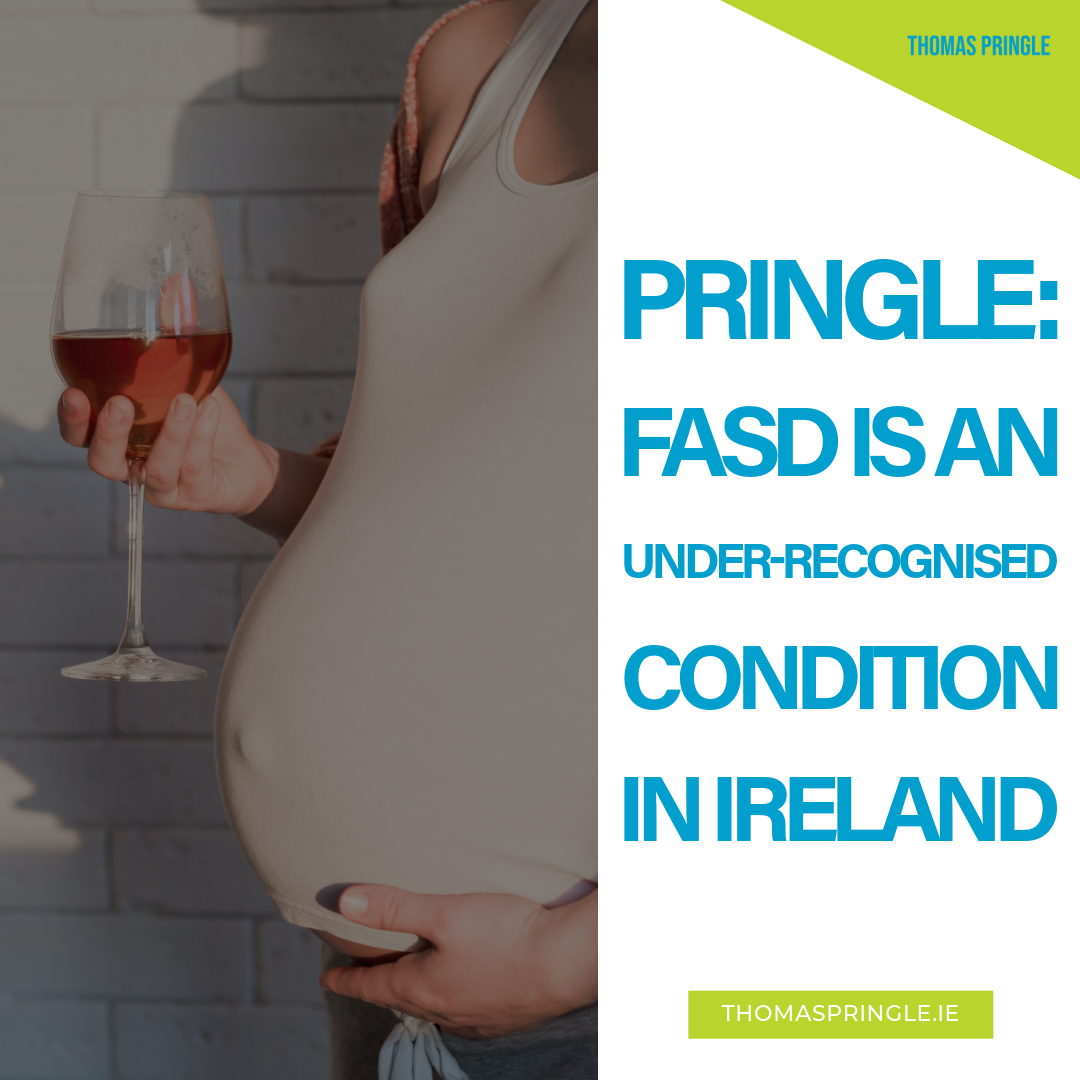- Pringle: We need a policy that recognises the importance of inshore fishing
- Pringle: Disabled people and carers face crisis of State neglect
- Pringle: Failed FF/FG housing policies forcing people to put their lives on hold
- Pringle welcomes Donegal council motion on Occupied Territories Bill: ‘We cannot stand by in the face of genocide’
Pringle: FASD is an under-recognised condition in Ireland
- Updated: 8th July 2024

Independent TD for Donegal, Thomas Pringle, said Foetal Alcohol Spectrum Disorder is under-recognised in Ireland and the national organisation FASD Ireland has still not received its 2024 allocation.
Addressing the Dáil last Thursday, Deputy Pringle said: “I know that there has been an allocation to FASD Ireland in the Department of Health budget for this year.
“But Minister, that has not made its way to FASD Ireland yet and we are almost two-thirds of the way through the year at this stage. That is worrying because in order to plan for next year, studies have to be started and that needs to happen quickly.”
The deputy raised the issue during Topical Issues last Thursday.
Deputy Pringle said: “FASD, Foetal Alcohol Spectrum Disorder, is an under-recognised condition in Ireland. Compared to other jurisdictions like Canada and New Zealand we are way behind in dealing with it and providing funding and support for sufferers and their families.
“There are estimates that between 4.75 and 7.2% of the population in Ireland are living with FASD. The problem is, bizarrely, that we don’t know for sure because there have been no studies or research carried out here. That is the crux of the issue of why we are here.
“While there are no statistics in Ireland, the agencies are working with FASD and recognising FASD as a problem that needs to be addressed. I know from talking to FASD Ireland that in some areas staff trying to deal with very difficult children are asking them to help, but the state organisations themselves are not recognising FASD.
“This is leading to children being left behind. Children that could have a more productive life if the state was able to assist them properly. School-going children may have learning difficulties because they can find it difficult to plan, organise themselves or understand consequences of their actions. They will have challenges such as inattention, hyperactivity, anxiety and frustration.
“An individual with FASD who does not have the correct support in place can experience many challenges throughout their life as well. These generally develop during adolescence but can develop earlier. They can experience difficulty with peers, inappropriate sexual behaviour, involvement in crime, poor mental health, alcohol and drug misuse and challenges with independent living.”
The deputy said: “I have seen some estimates that up to 30% of individuals who are in prison are sufferers of FASD. In Ireland it is considered that that could be an even higher percentage, but the reality is that we don’t know because we haven’t researched it.
“Recognising the condition and treating it could save the State huge amounts of funding on vital and scarce public services, so even from a bean counter’s point of view it would make sense. Likewise, we don’t know the prevalence throughout all our systems of health and education because we have not recognised the existence of FASD,” he said.
The deputy said: “As you know, it is about providing the evidence base so that we can have a funding allocation that would allow supports to be put in place.”
Deputy Pringle said FASD Ireland is operating, “but they’re operating the service on loans from the bank because they’re waiting for funding to come forward from the Government. And it will be July or August at the earliest before funding will make its way to them and that’s slack, I believe.”
He said: “With part of that funding as well they’re going to provide for some studies to be carried out, but they won’t be carried out in time now to get in for next year’s application. So that time is going to be lost as well. And all during this there’s going to be children that are going to be lost.”
“We need to get moving on it and get moving on it quickly,” the deputy said.



